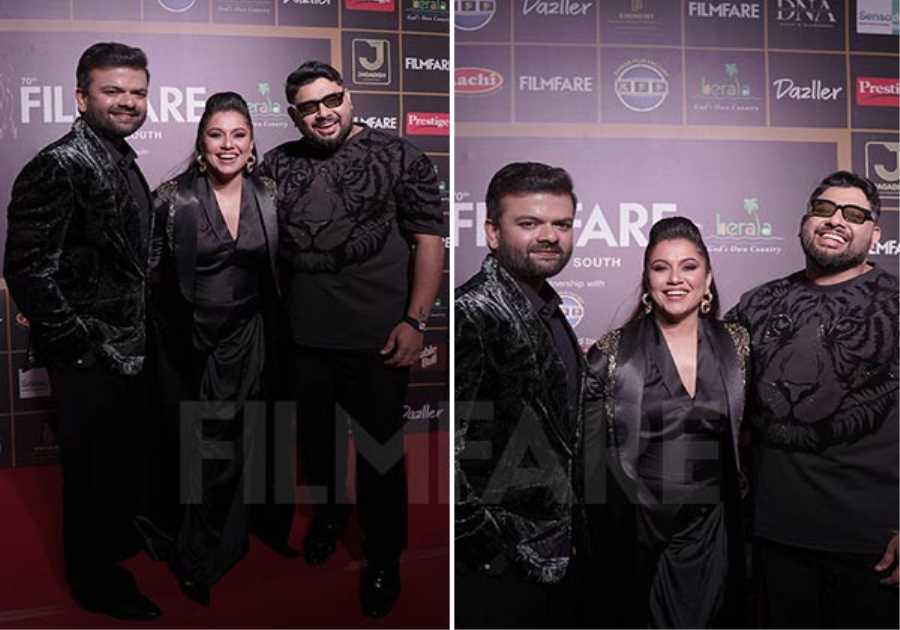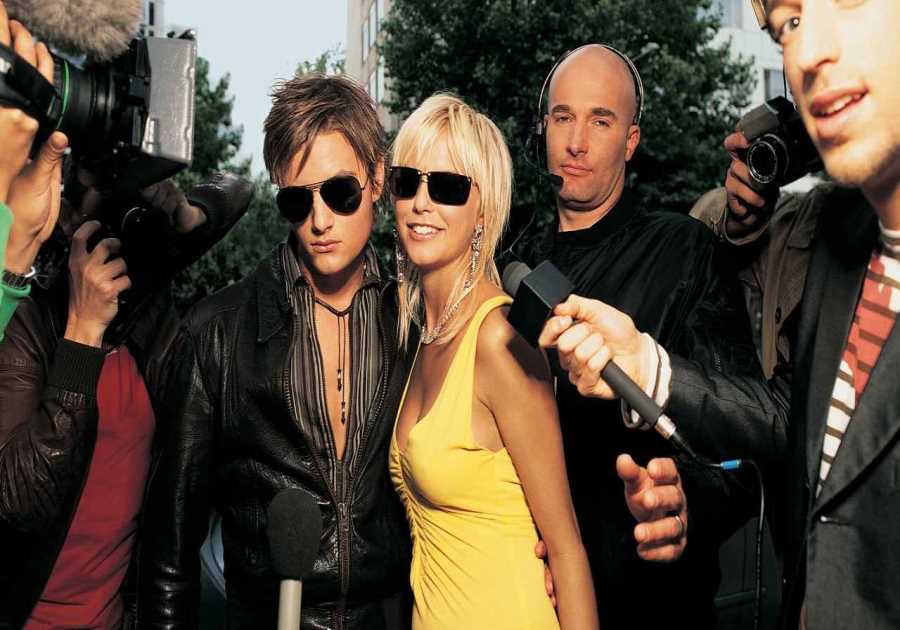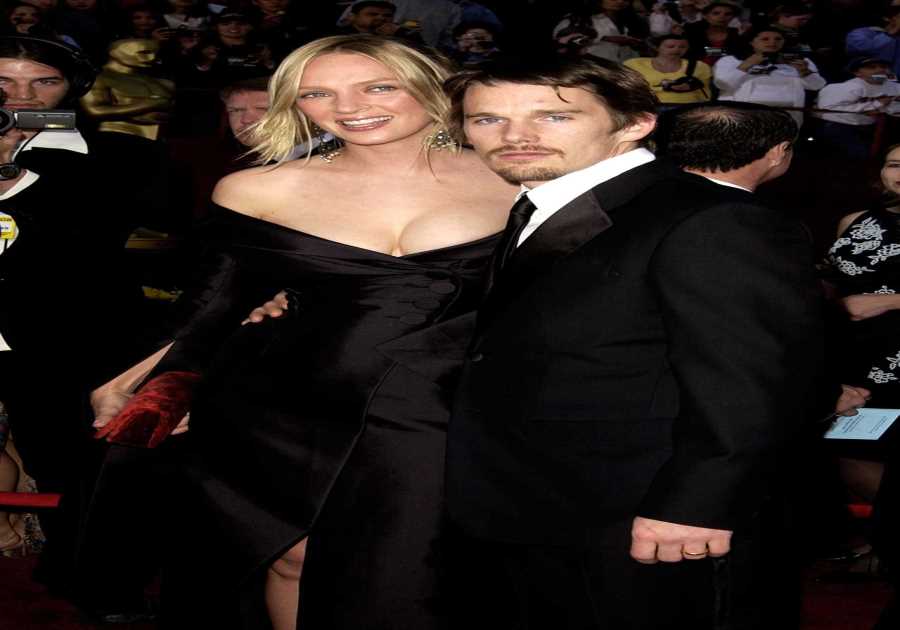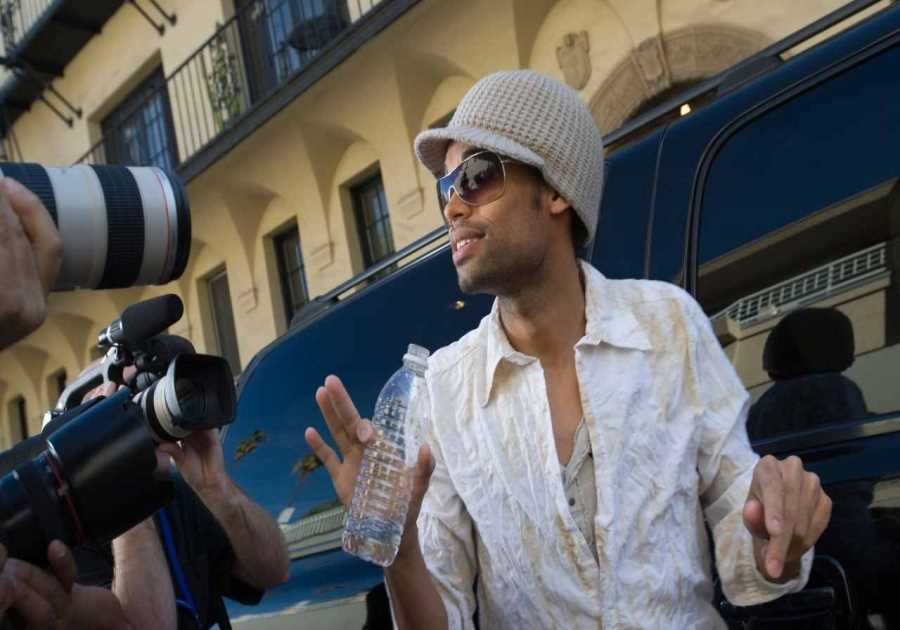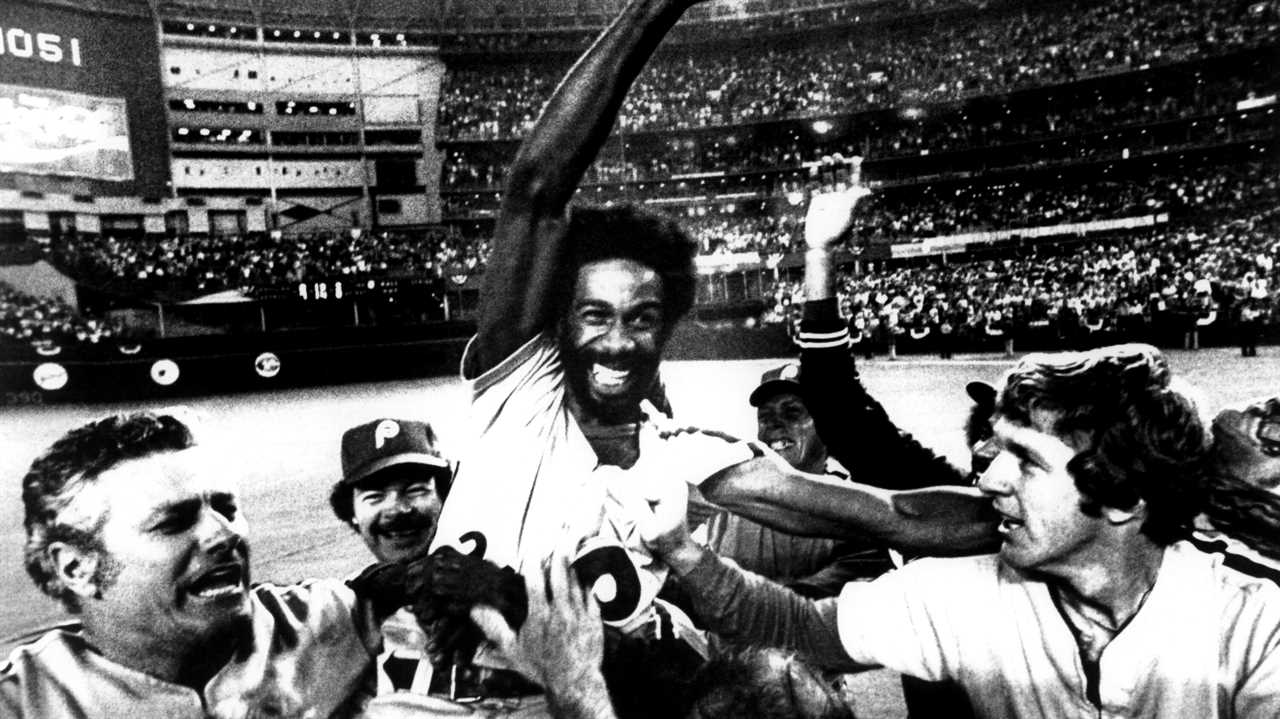
The Phillies’ marquee man, a prolific power hitter who has never led his team to the World Series, steps to the plate. It is the eighth inning of Game 5 of the National League Championship Series. The Phillies are trailing by a run with the tying run on base. This is hero time.
Two strikes. Fastball on the outside corner. The slugger starts his swing.
For Mike Schmidt, the greatest player in Phillies history, it was a moment of confounding indecision. He started his swing, checked it, and the ball caught the corner for a called third strike.
For Bryce Harper, the greatest current Phillie, it was a moment of stirring satisfaction. Harper tore into the pitch and drove it over the fence in left-center. The Phillies won the pennant and will meet the Astros in the World Series. It starts on Friday in Houston, the same city where Schmidt struggled in 1980, in an autumn that ultimately became his own.
Schmidt, 73, will be in Philadelphia for the games next week. On Sunday, from his home in Jupiter, Fla., he watched Harper connect for the clutch hit that eluded him in that 1980 N.L.C.S., when the Phillies slipped past the Astros in a rollicking best-of-five series that featured four extra-inning games. Schmidt was awe-struck when Harper went deep.
“I said to myself, ‘I can’t believe what I just saw,’” Schmidt said in a telephone interview on Tuesday. “You don’t see hitters go to the opposite field very often, if ever, to win a game, especially of that magnitude. You have to have total control of yourself to go with the pitch in that situation.
“Normally a guy will pop that up, swing and miss it, hook it to the second baseman, because normally the pressure of the moment takes over and causes you to be over anxious. And to be able to hit that fly ball to left field, it’s almost like he said, ‘Hey, let me show you how to win this game. I want to hit this fly ball to left field.’”
Then Schmidt, the most valuable player of that World Series against Kansas City, gave Harper a powerful compliment.
“That guy,” Schmidt said, “he is one of, if not the, greatest performer under pressure I’ve ever seen.”
The Phillies of the Harper era are making their first visit to the World Series, just like the Phillies of Schmidt’s era did in 1980. The Houston series that led them there might be the most wrenching and riveting postseason series ever.
“It has, to be sure, been a wild, memorable, classic baseball series,” Jayson Stark wrote in The Philadelphia Inquirer, even before the uproarious finale. “It has been one that could make a baseball fan out of an armadillo.”
The Astros — who moved to the American League in 2013 — were making their first postseason appearance as champions of the N.L. West. The Phillies, meanwhile, had lost in the N.L.C.S. in 1976, 1977 and 1978. In 1980, they had the league’s M.V.P. in Schmidt, the Cy Young Award winner in Steve Carlton, and a nagging sense that their core of veterans — Bob Boone, Larry Bowa, Greg Luzinski, Garry Maddox — might never fulfill its promise.
“The magnitude of what this meant,” said Ed Wade, then the Astros’ public relations director, “for both franchises, was really extreme.”
It had been an eventful year for the Astros. Before the season, they signed two future Hall of Famers in free agency: second baseman Joe Morgan and starter Nolan Ryan, who teamed with another strikeout artist, J.R. Richard, for the most dominant one-two rotation tandem in baseball. Then Richard suffered a career-ending stroke in late July.
“We still probably had one of the best pitching staffs, but with him nobody was ever going to beat us,” Enos Cabell, the Astros’ third baseman, said on Monday. “Just because nobody could beat J.R. at that time.”
Both teams staged breathless races to win their divisions, the Astros taking a one-game playoff over the Dodgers in Los Angeles the day before the N.L.C.S. began in Philadelphia. Houston lost the opener to Carlton, 3-1, with Luzinski belting a two-run homer.
It would be the only home run of the series and the only game decided in nine innings. No postseason series since (minimum five games) has had so few homers, and no other postseason series has ever had four extra-inning games.
The Astros drew even in Game 2 at Veterans Stadium with a 7-4 victory in 10 innings, then took Game 3 at the Astrodome, 1-0, in 11 innings. The knuckleballing Joe Niekro pitched 10 innings, and Tug McGraw, the Phillies’ indefatigable closer, was working his fourth inning of relief when Denny Walling won it with a sacrifice fly.
Then things got really crazy, prompting this description of Game 4 from McGraw: “It was like a motorcycle ride through an art museum,” he said. “You see the pictures but afterward you don’t remember what you saw.”
The Phillies needed to do something that had never happened in the 12 years of the league championship series: win the pennant by taking Games 4 and 5 on the road. And the Astrodome, of course, was no ordinary road venue. Four years earlier, the Astros had drawn fewer than 900,000 fans all season. In 1980, they drew more than 2.2 million — and it sounded as if they had all shown up for the playoffs.
“It was as loud as I’ve ever heard anything,” Greg Gross, a Phillies outfielder, said on Tuesday. “You really couldn’t talk; if you wanted to say something to somebody, they could be four feet away and you had to yell at them. It was just constant, and it never let up. And when they got a hit or came back and tied it every time, it got even louder.”
Now, imagine a 20-minute break in the middle of the game to discuss whether a pitcher had trapped a line drive — or caught it to start a triple play. It happened in Game 4 to Astros pitcher Vern Ruhle, who swore for the rest of his life that he’d caught a hit by Maddox on the fly. With replay still decades away from being introduced in Major League Baseball, umpires finally let the league president, Chub Feeney, make the ruling: double play, not triple play.
In any case, the Astros held a multi-run lead through seven innings with a chance to close out the Phillies — just as they would in Game 5. This time, Gross singled to start a three-run rally, but the Astros came back to tie it on a Terry Puhl single in the bottom of the ninth.
With one out and Cabell at the plate, Puhl took off for second — and was doubled off first when Cabell flied to right. The ABC broadcast crew was aghast, but that was Houston’s style. The Astros hit only 75 homers that season but had 194 stolen bases.
“We played all tight games all the time, because we couldn’t hit home runs in our park,” Cabell said. “The Phillies would maul people.”
But with Schmidt held to a .208 average and no homers in the N.L.C.S., the Phillies showed that they could win with small-ball, too — and get a little dirty doing it. In the 10th inning of Game 4, Luzinski smashed a two-out double with Pete Rose on first base. Rose charged around the bases for the go-ahead run, plowing into catcher Bruce Bochy, knocking him over with a forearm to the face.
“That was the biggest wreck I’ve ever seen in my life,” Cabell said. “He knocked Bochy almost halfway into the stands.”
After the 5-3 loss, they came back with Ryan in Game 5, and took a 5-2 lead into the eighth. Wade — who had interned for the Phillies and would go on to serve as the general manager for both teams — boarded the elevator to the clubhouse level to prepare for a celebration. By the time he got to the ground floor, a rally was underway. He met his former boss, the Phillies’ P.R. man, Larry Shenk.
“Now you’ve got both P.R. guys — me and the guy who hired me — and we’re pacing back and forth down there until the game ends,” Wade said.
Bowa punched a single to center. Ryan reached out to deflect a ground ball by Boone — a sure double-play that turned into an infield single. That brought Gross, a former Astro, to the plate. Normally a hitter who worked the count, Gross noticed Cabell playing back and decided to bunt the first pitch. His knowledge of the Astrodome helped.
“Even though it was an AstroTurf field, it was flat,” Gross said. “All the other AstroTurf fields were crowned because of drainage, but they didn’t have to worry about that. And it was a little softer; it was dirt underneath the turf in Houston rather than asphalt, like it is in other stadiums.”
Gross sent his bunt trickling, deadening the ball and sending it out of the reach of Cabell and Ryan. That loaded the bases, and after a walk to Rose — who theatrically flipped his bat — Ryan left for a reliever. One batter later, Schmidt came to bat for his strikeout against Ken Forsch.
“I laid an egg in that Houston series,” Schmidt said. “I didn’t really do anything.”
Before Schmidt could dwell on his failure, though, Del Unser tied the game with a single. Schmidt has often said that the most important at-bat of his career wasn’t even his own; it was Unser’s for redeeming him.
“He’s said it to me a million times, and I almost blush,” Unser said. “It was just like, well, what are you supposed to do up there? I’m trying, we’re all trying. How about him getting me to the World Series?”
The Phillies took a two-run lead on a triple by Manny Trillo, but McGraw — who would be a star of the World Series — lost it in the eighth. It took a go-ahead double from Maddox in the 10th, and steely relief from starter Dick Ruthven, to seal the pennant for the Phillies. Maddox — whom Wade had asked to be the best man at his upcoming wedding — caught a fly ball by Cabell to end it.
“Garry Maddox and I played against each other in high school,” Cabell said. “I thought that ball was in the alley, I was running as hard as I could. But he was a heck of a center fielder.”
As for Schmidt, he celebrated with teammates but could not hide a certain emptiness at having let people down. He was among the last to board the team bus — and his teammates, sensing his mood, gave him a standing ovation that finally allowed Schmidt to relax.
Looking back, Schmidt said, the story embarrasses him; he should not have been selfish at such a moment of joy. His modern Phillies counterpart, he is certain, would have handled it better.
“I should have gotten on the bus yelling and screaming and going, ‘Way to go!!’” Schmidt said. “Bryce Harper would have done that, right?”
-----------------------
By: Tyler Kepner
Title: The Astros and the Phillies in a Big Series? We’ve Seen This Before.
Sourced From: www.nytimes.com/2022/10/25/sports/baseball/astros-phillies-1980-nlcs.html
Published Date: Wed, 26 Oct 2022 10:39:24 +0000
Did you miss our previous article...
https://ballerawards.news/sports/jim-nantz-will-say-goodbye-friends-to-the-final-four-this-year-and-ian-eagle-will-replace-him


